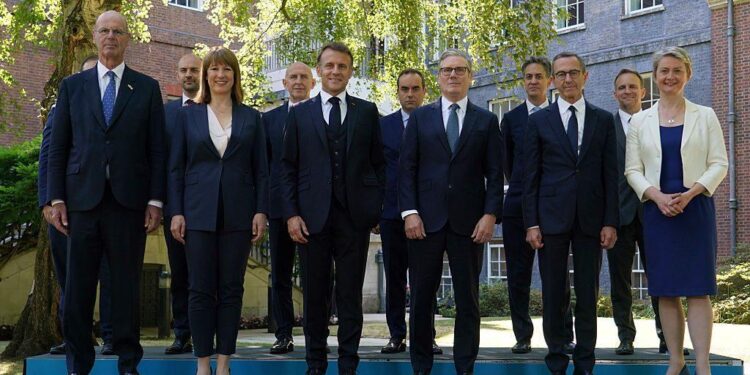As tensions in Eastern Europe continue to escalate, the question of how Western powers can effectively deter Russian aggression has come sharply into focus. Amid renewed security concerns, the prospect of enhanced nuclear cooperation between the United Kingdom and France is gaining attention as a potential strategic lever. This article explores whether closer collaboration between the two European nuclear powers could strengthen collective deterrence against Russia, examining the political, military, and diplomatic dimensions of such a partnership in the evolving geopolitical landscape.
British and French Nuclear Collaboration as a Strategic Deterrent Against Russian Aggression
In the face of growing tensions with Russia, the United Kingdom and France have quietly deepened their nuclear collaboration, reinforcing a united front as a powerful strategic deterrent. Both nations maintain independent nuclear arsenals but have increasingly coordinated their doctrines, sharing intelligence and advancements in missile technology. This partnership signals a renewed commitment to disrupting any potential aggression by Moscow through a combined message of resilience and capability. Observers note that this trilateral deterrence approach-linking NATO’s extended nuclear umbrella with European autonomous capabilities-could reshape the security landscape in ways Moscow must carefully consider.
The synergy between British and French nuclear forces extends beyond mere coordination; it encompasses joint modernization programs and crisis response protocols. Key elements enhancing deterrence include:
- Integrated early warning systems that improve response times and reduce miscalculations.
- Shared R&D investments focusing on low-yield warheads designed for flexible, credible retaliation.
- Coordinated diplomatic messaging reinforcing the political will to respond decisively.
Such collaboration not only multiplies the operational reliability of nuclear deterrence but also conveys a message of unwavering alliance solidarity against any form of Russian adventurism.
| Key Areas of UK-French Nuclear Cooperation | Impact on Deterrence | |
|---|---|---|
| Joint Missile Technology Programs | Enhanced strike precision and readiness | |
| Shared Intelligence and Surveillance | Improved early threat detection | |
| Coordinated Crisis Management Strategies | Coordinated Crisis Management Strategies | Faster, unified decision-making under pressure |
| Joint Modernization Initiatives | Sustained technological edge and interoperability | |
| Diplomatic Messaging Coordination | Clear, consistent deterrence signaling to adversaries |
| Challenge | Opportunity |
|---|---|
| Legal and policy divergences | Harmonizing operational protocols |
| Divergent nuclear doctrines | Joint strategic planning exercises |
| Public and political skepticism | Strengthened transnational defense partnerships |
Policy Recommendations for Enhancing Nuclear Cooperation to Strengthen European Security
To bolster European security amid persistent Russian aggression, policymakers should prioritize expanding nuclear collaboration between the United Kingdom and France beyond traditional frameworks. This deepened partnership could include joint development of interoperable delivery systems, synchronized threat assessments, and a unified strategic communication platform to enhance deterrence credibility. Coordinated modernization programs, pooling research on advanced nuclear technologies, and shared training exercises would not only optimize resources but also send a clear signal of transnational resolve to Moscow.
Key strategies for advancing this cooperation involve:
- Harmonizing nuclear doctrines to present a cohesive defense posture.
- Establishing bilateral command and control links to improve decisiveness under crisis.
- Fostering legislative support within both parliaments to ensure sustained political backing.
- Engaging NATO allies to integrate these efforts within broader alliance frameworks.
| Policy Area | Potential Outcome |
|---|---|
| Joint R&D Programs | Accelerated modernization, cost sharing |
| Integrated Command Systems | Faster response, unified messaging |
| Harmonized Doctrines | Stronger deterrence coherence |
| Political Alignment | Long-term commitment, public support |
Wrapping Up
As geopolitical tensions continue to shape the security landscape of Europe, enhanced nuclear cooperation between the United Kingdom and France represents a strategic dimension worth close attention. While such collaboration alone may not decisively deter Russian aggression, it underscores a shared commitment to collective defense and nuclear deterrence within the region. Ultimately, the effectiveness of this cooperation will depend on sustained political will, clear communication, and integration within broader NATO strategies. As policymakers navigate these complex dynamics, the evolving UK-France nuclear partnership will remain a critical factor in Europe’s ongoing efforts to maintain stability and deter potential threats.
















